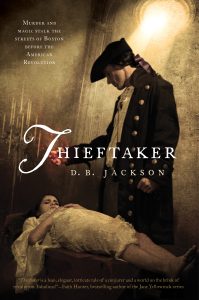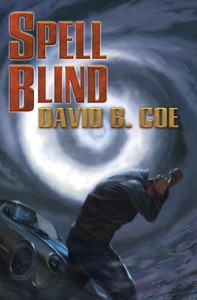For all of January, I have been writing about “what matters” and what doesn’t. I’ve written about this in terms of our personal lives and our professional ones. And I fear I have left readers with the impression that, in my opinion, all they do should be geared toward those things we decide do matter, that when it comes to allocating our personal time, our emotional energy, our intellectual focus, “what matters?” should guide all of our choices.
Nothing could be further from the truth.
“What matters?” is, I believe, a useful question to ask ourselves. I remember back when I was in college, sitting on the green of Brown’s campus, talking to a friend, and thinking to myself, “I really have a shit-ton of work to do. Should I be here, or should I be in the library?” And yes, there were times when I realized the conversation I was having didn’t rate in terms of importance. In those moments, I confessed to having a lot to do, and went off to my lonely carrel in the library. At other times, though, I recall answering that silent question differently, certain that the conversation I was having mattered more than work did at the given moment. The work would get done, I knew. My friend needed me. Or I needed them.
And in the same vein, I know beyond doubt that sometimes the things that matter are, in fact, the things of little or no importance. An oxymoron? Maybe. But you know I’m right.
Yes, family and friends matter. Work matters. We should make time for those pursuits that enrich our lives and feed our souls or our bodies: photography, music, gardening, knitting, exercising, hiking, birdwatching, reading, dancing, attending theater or movies or concerts. We all have our interests and passions.
But we can also find value and entertainment and even peace is less lofty activities. Sometimes what we need is an hour or two of mindless television, or a good game (baseball, football, basketball, soccer, hockey, whatever) to watch and cheer. Sometimes spending a half hour absorbed in a ridiculous video game is just the thing to clear our thoughts.
If we spend every minute of every day worrying about what matters and doing the things that are most important, we will burn ourselves out. At no time in the past several weeks, as I have written about the things that matter, have I meant to imply otherwise. As in all endeavors, we must find balance. I work daily. I devote time to my family, marriage, my parenting. I try to do the things I love, to make good use of as much of my time as I can. But I also know that some of that “good use” can be put to silly, meaningless stuff that I enjoy.
I have games on my phone that I play daily. (No, I won’t tell you which ones. That would be embarrassing . . . .) I listen to music, not because it enriches me (though it often does) but because it’s fun. Nancy and I have shows we love to watch, and yes, part of the joy lies in watching together. But part of the joy is also just losing ourselves in storylines that are amusing, or suspenseful, or exciting, or even trashy. (Looking at you, creators of The Crown . . . .) I love watching sports on television. Baseball, soccer, basketball — I can lose myself in a good game even if I don’t care too much about either team. I like watching golf, too, mostly because it takes me back to my youth, when I watched with my dad and he taught me all he knew about the game.
Early on in this series of posts, I wrote about managing our days, and looking for ways to maximize the time we spend on those things we deem important. I don’t mean to contradict that earlier post. I mean merely to counter it with a simple reality: We can’t allocate every moment to weighty endeavors. Life demands that we slow down now and then and give ourselves a break, whatever that might mean.
And so, as I wind down my series of “What matters?” posts, I urge you to ask the question when it seems appropriate, but also to give yourself a break now and again. Being directed is great. And on occasion, so is being frivolous. Because ultimately, what matters is that we’re well and whole.
Wishing you all the best, and a very fine week to come.









 My “What matters?” series of posts will conclude next Monday, after a Monday Musings post this week that straddled the personal and professional a bit more than usual. In the meantime, I am using today’s Professional Wednesday post to begin pivoting toward the impending release of my new series, a contemporary urban fantasy that delves deeply into Celtic mythology. The series is called The Chalice War, and the first book is The Chalice War: Stone. It will be released within the next month or so, and will be followed soon after by the second book, The Chalice War: Cauldron, and the finale, The Chalice War: Sword.
My “What matters?” series of posts will conclude next Monday, after a Monday Musings post this week that straddled the personal and professional a bit more than usual. In the meantime, I am using today’s Professional Wednesday post to begin pivoting toward the impending release of my new series, a contemporary urban fantasy that delves deeply into Celtic mythology. The series is called The Chalice War, and the first book is The Chalice War: Stone. It will be released within the next month or so, and will be followed soon after by the second book, The Chalice War: Cauldron, and the finale, The Chalice War: Sword. I finished the book and showed it to my agent. She liked it a lot, but thought it needed work. She was right, of course. But by that time, I had signed the contracts for Robin Hood and the Thieftaker books. Not too long after, I finally sold the Fearsson series to Baen Books and so had that trilogy to get through.
I finished the book and showed it to my agent. She liked it a lot, but thought it needed work. She was right, of course. But by that time, I had signed the contracts for Robin Hood and the Thieftaker books. Not too long after, I finally sold the Fearsson series to Baen Books and so had that trilogy to get through. But I never forgot my Celtic urban fantasy, or its heroes Marti and Kel. When I had some spare time, I went back and rewrote the book, incorporating revision notes from friends and from my agent with my own sense of what the book needed. I rewrote it a second time a couple of years later, and having some time, started work on a second volume, this one set in Australia (where my family and I lived in 2005-2006). I stalled out on that book about two-thirds of the way in, but I liked what I had. By then, though, I was deeply involved with the final Thieftaker books and the Fearsson series. And I was starting to have some ideas for what would become the Islevale trilogy.
But I never forgot my Celtic urban fantasy, or its heroes Marti and Kel. When I had some spare time, I went back and rewrote the book, incorporating revision notes from friends and from my agent with my own sense of what the book needed. I rewrote it a second time a couple of years later, and having some time, started work on a second volume, this one set in Australia (where my family and I lived in 2005-2006). I stalled out on that book about two-thirds of the way in, but I liked what I had. By then, though, I was deeply involved with the final Thieftaker books and the Fearsson series. And I was starting to have some ideas for what would become the Islevale trilogy. But I had been through this before. The first book in the Case Files of Justis Fearsson went through at least half a dozen iterations between the first draft, written in 2005, and its eventually publication in 2014. I first came up with the basic concept for Invasives, the second Radiants book, in 2009. It sat on my computer desktop for more than ten years before I actually used it.
But I had been through this before. The first book in the Case Files of Justis Fearsson went through at least half a dozen iterations between the first draft, written in 2005, and its eventually publication in 2014. I first came up with the basic concept for Invasives, the second Radiants book, in 2009. It sat on my computer desktop for more than ten years before I actually used it. What about you? I’m not merely asking what you wish to accomplish, though obviously that’s part of the equation. I’m asking as well what you care about. Sure, maybe you want to be published — or at least contracted — by year’s end. That’s a laudable goal. But what project will get you there? What story is burning brightest inside you? What work will bring you joy? What project is most likely to tap into your greatest creative passion? That ought to be part of the equation as well.
What about you? I’m not merely asking what you wish to accomplish, though obviously that’s part of the equation. I’m asking as well what you care about. Sure, maybe you want to be published — or at least contracted — by year’s end. That’s a laudable goal. But what project will get you there? What story is burning brightest inside you? What work will bring you joy? What project is most likely to tap into your greatest creative passion? That ought to be part of the equation as well.